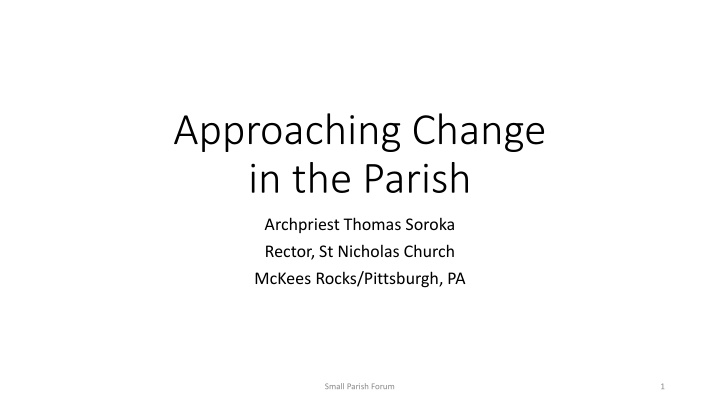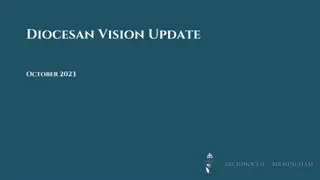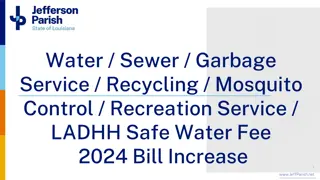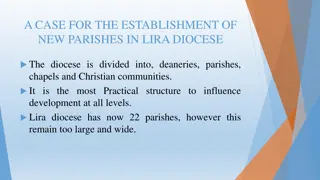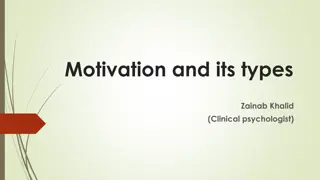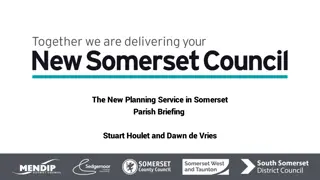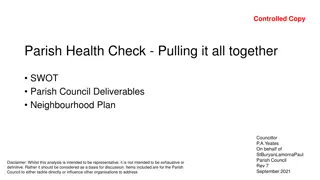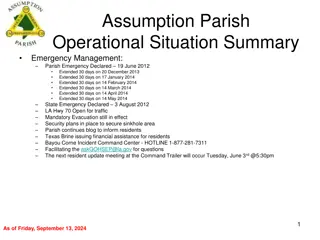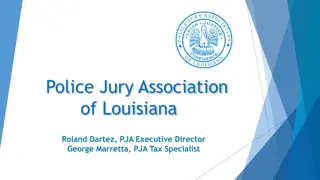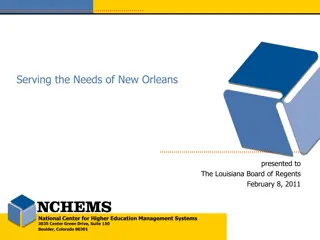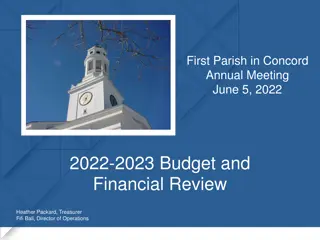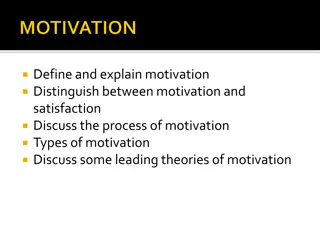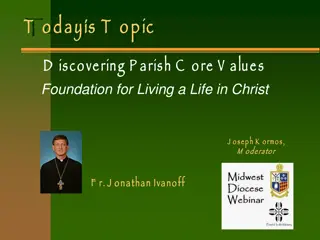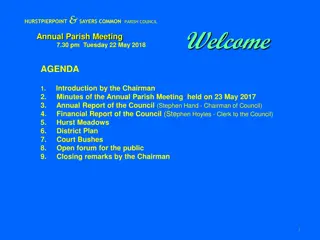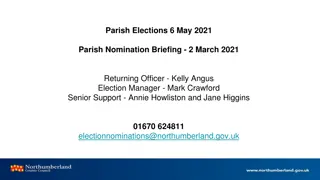Navigating Change in the Parish: Motivation, Biblical Aspects, and Goal Setting
Understanding the motivation for change in a parish environment is crucial for effective leadership. By exploring biblical and spiritual aspects of change and assessing the current reality, parish leaders can create a vision for the future and set achievable goals that balance concerns and aspirations. Emphasizing specific characteristics in goal-setting ensures a positive and developmental approach to navigating change in the parish community.
Download Presentation

Please find below an Image/Link to download the presentation.
The content on the website is provided AS IS for your information and personal use only. It may not be sold, licensed, or shared on other websites without obtaining consent from the author.If you encounter any issues during the download, it is possible that the publisher has removed the file from their server.
You are allowed to download the files provided on this website for personal or commercial use, subject to the condition that they are used lawfully. All files are the property of their respective owners.
The content on the website is provided AS IS for your information and personal use only. It may not be sold, licensed, or shared on other websites without obtaining consent from the author.
E N D
Presentation Transcript
Approaching Change in the Parish Archpriest Thomas Soroka Rector, St Nicholas Church McKees Rocks/Pittsburgh, PA Small Parish Forum 1
The Motivation for Change Motivation: the reason for an action or behavior What is the motivation for change to occur? Is our motivation becoming push or pull? Our culture is now used to choice (individualism), and this includes religion. This informs how we must lead. The rise in the individual s freedom and power to make choices is consequently making the relationship between congregant and congregation more conditional, negotiated, and transactional in nature. (Coutts, p 13) Without a careful plan, change can be destructive. 2 Small Parish Forum
Biblical and Spiritual Aspects of Change Though as Orthodox Christians we hold the Apostolic deposit unchanged, our living faith demands that we constantly renew ourselves to be conformed to the likeness of God. do not be conformed to this world, but be transformed by the renewing of your mind, that you may prove what is that good and acceptable and perfect will of God. (Rom 12:1-2) Therefore we do not lose heart. Even though our outward man is perishing, yet the inward man is being renewed day by day. (2 Cor 4:16) Therefore, if anyone is in Christ, he is a new creation; old things have passed away; behold, all things have become new. (2 Cor 5:17) 3 Small Parish Forum
Assessing the Current Reality How can you assess the current climate of your parish? Observation (self/others/visitors) Attendance Reflection Discussion Survey Assessment tools Current concerns (problems/issues/weaknesses) are the push motivators These can sometimes lead to negative attitudes 5 Small Parish Forum
A Vision of the Future and Goals, Push & Pull Vision and goals are crucial they are pull motivators Both concerns (push) and goals (pull) are a more complete picture However, people tend to be more motivated by concerns than vision! Push is more influential than pull. Push concerns, present, imperative, can be negative Pull vision and goals, future, possible, can be positive Therefore, create goals that balance and complement your concerns 6 Small Parish Forum
Necessary Characteristics of Goals Specific High but not unrealistic Immediate Necessary Positive Developmental Clear 7 Small Parish Forum
Proposing Change and the Motivational Process Before goals are proposed, much preparation must take place. The underlying idea is to avoid polarization, not by avoiding divisive issues, but by assessing the attitudes on each side of the issue The balance of Drivers (motives for) and Resisters (motives against) 1. Determine what are the most influential motives and attitudes motivating parishioners to pursue a vision for the future (drivers) and motives and attitudes to reject a vision for the future (resisters). 2. Determine what will be required to change attitudes which strengthen drivers and diminish resisters. 3. Help parishioners reflect on and change attitudes before presenting a vision or goals for the future that may seem initially divisive. 8 Small Parish Forum
Creating a Team to Guide the Change Process The team will often be the parish council, but it may also be either a subset or an ad hoc committee of motivated opinion leaders 1. Create greater readiness for change (stewardship of the future) 2. Discovery (help perceive gaps and question their own attitudes) 3. Dialogue (helps learn about and shape attitudes) 4. Deliberation (thoughtful discussion and opportunity for decision) 5. Deployment (implementation and achievement of the goal) 9 Small Parish Forum
The Trust Factor Trust is a key factor in change. Do not assume that parishioners trust simply because someone is in a position of leadership or authority. Trust grows out of a relationship that experiences time and intensity. Trust flourishes with sincerity, authenticity, and integrity. Goals, no matter how correct, will be rejected by those parishioners who do not trust the leadership. Trust will be only one part of the change equation. 10 Small Parish Forum
Implementing and Evaluating Change State the goals of the change clearly. Communicate, communicate, communicate. Celebrate your successes! Be thankful and acknowledge everyone. Go back and evaluate the process. (This step is often ignored but is crucial to future change and growth.) Look to the future with hope and vitality to continue the change process. 11 Small Parish Forum
